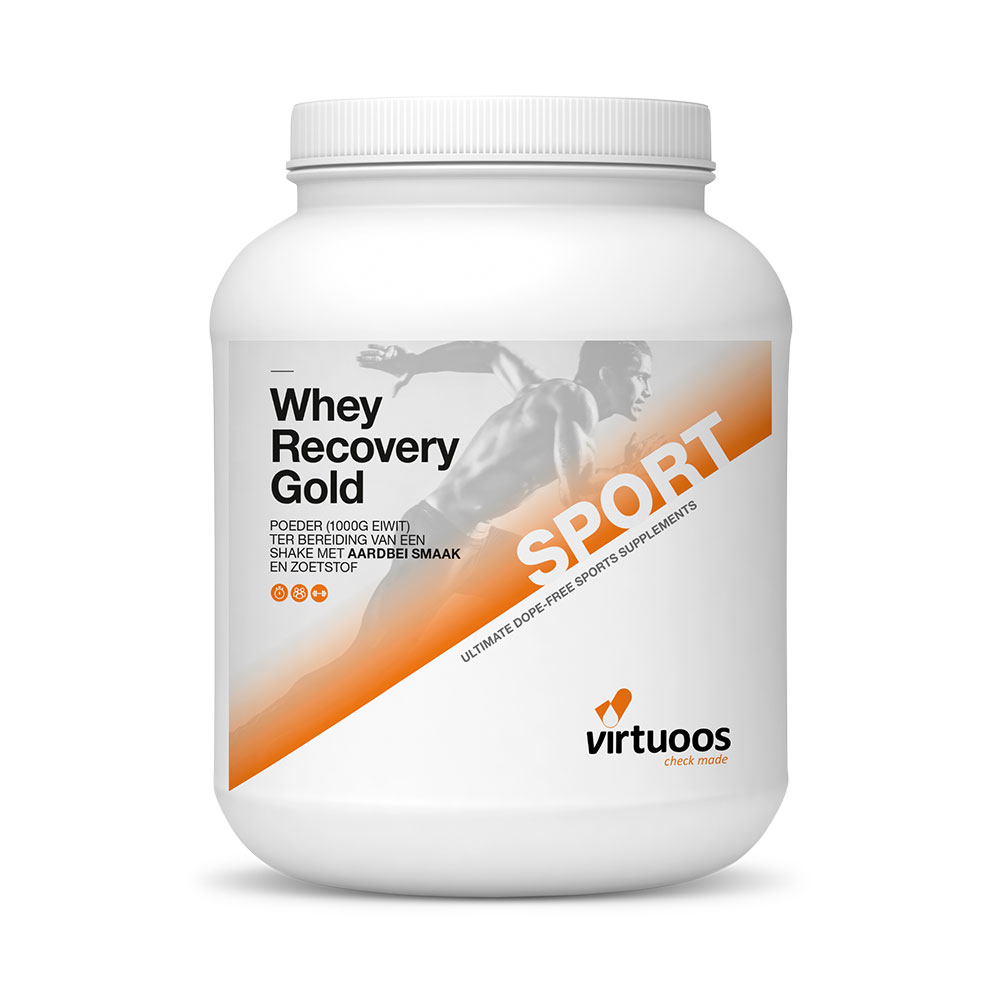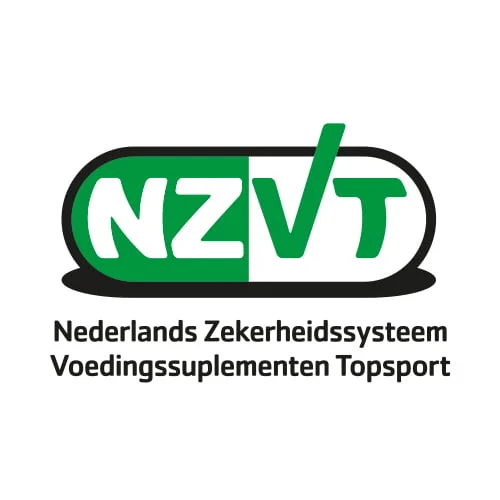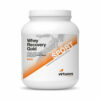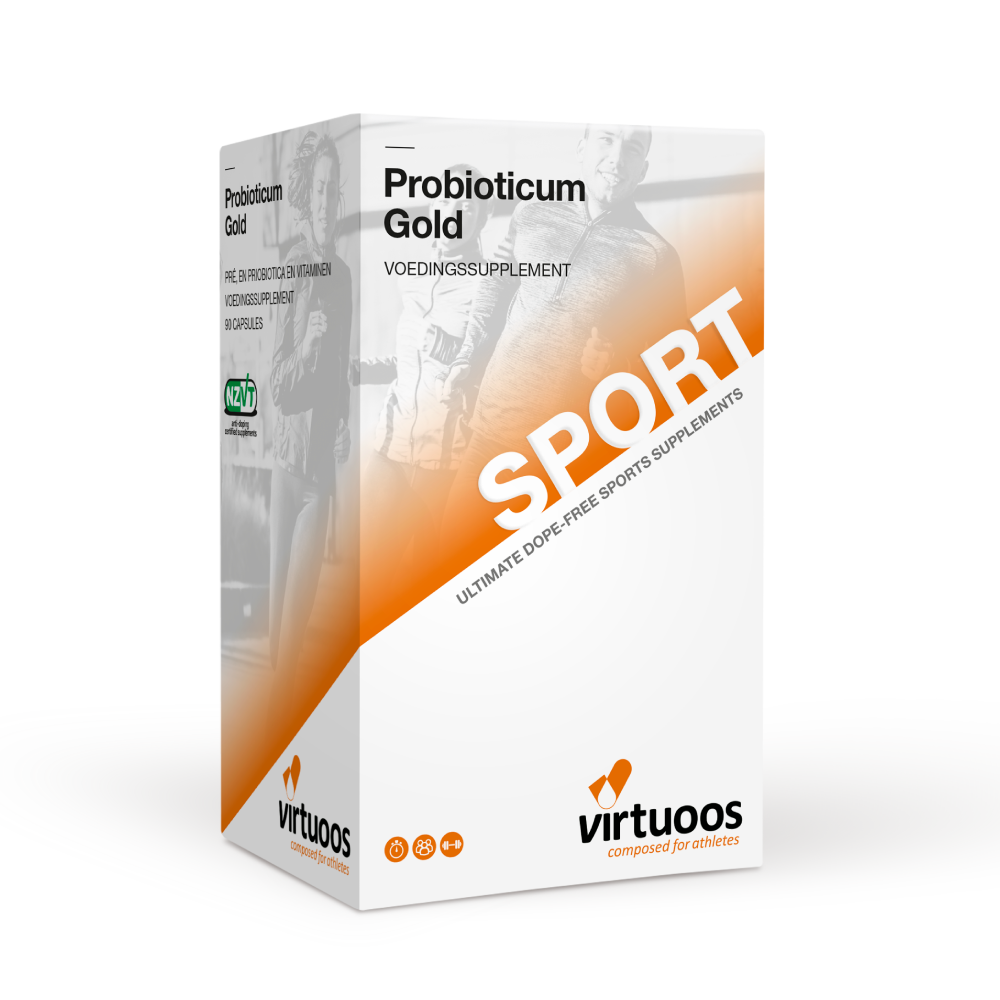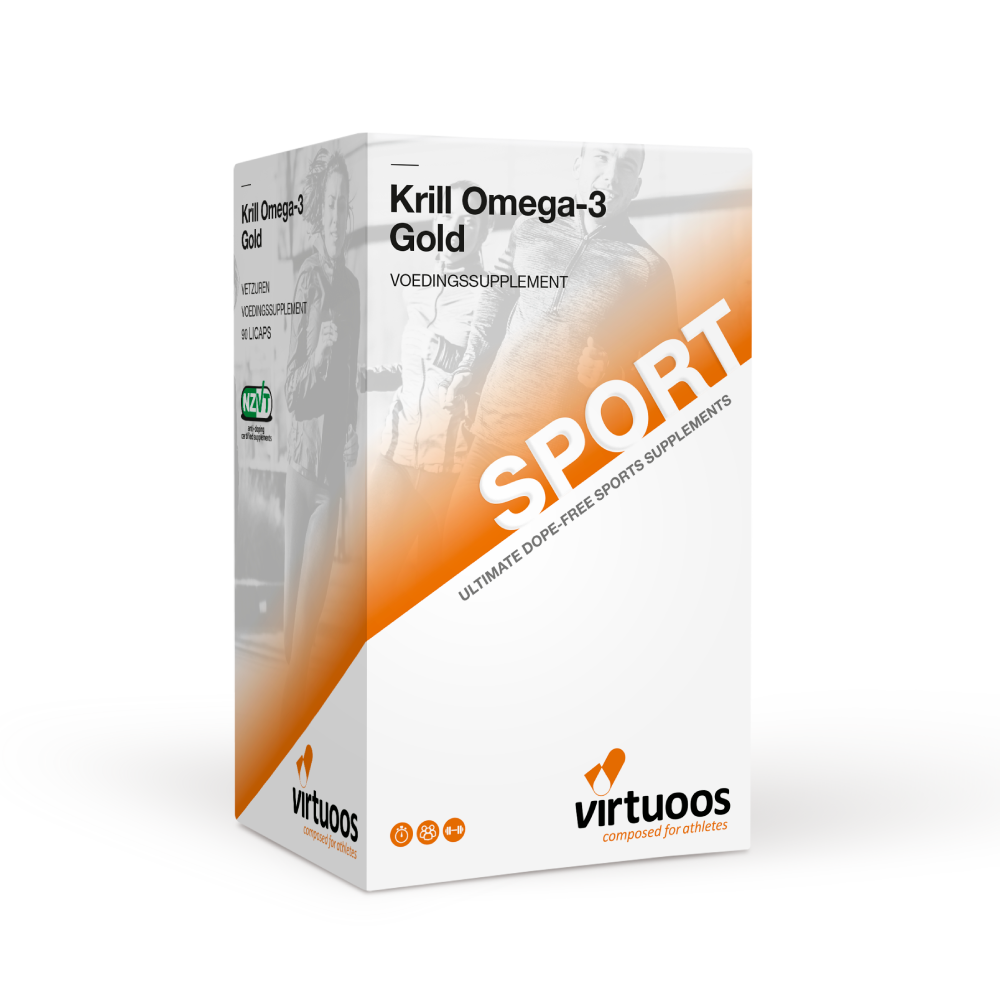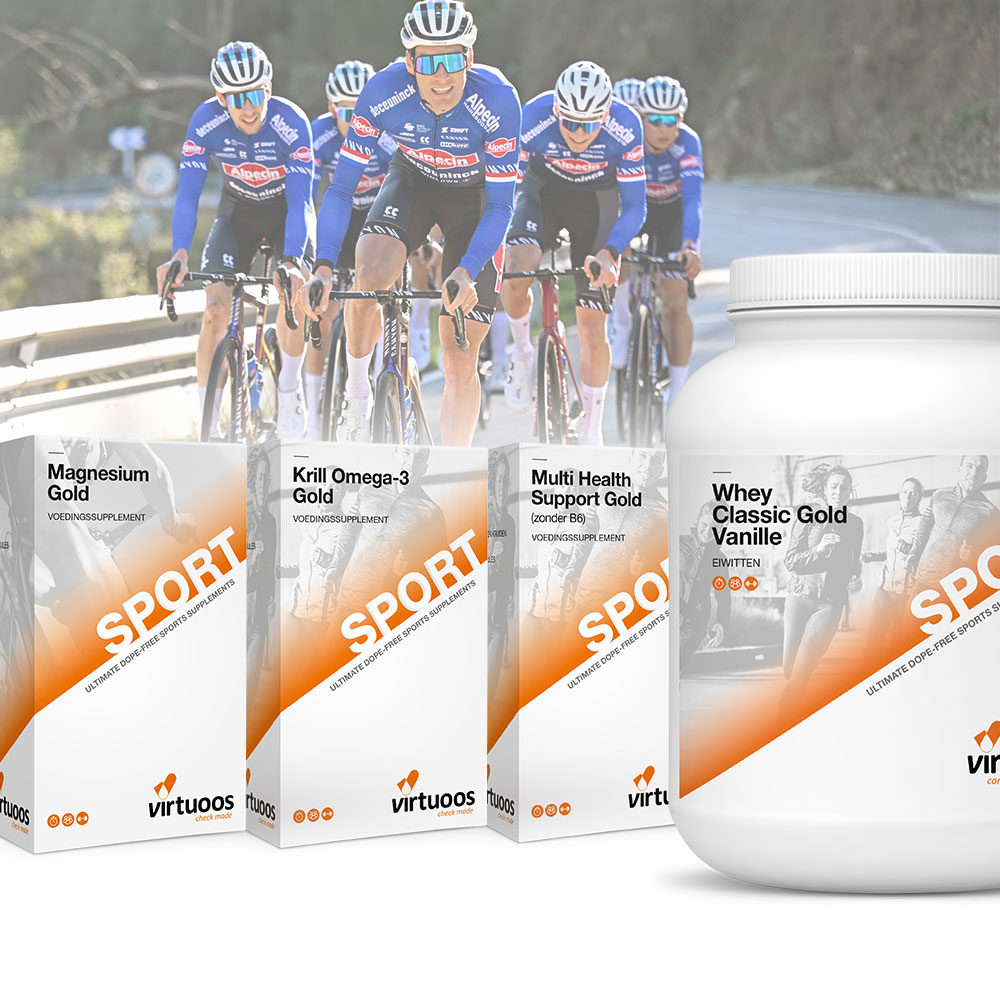Whey Recovery Gold
€ 53,50
Whey Recovery Gold contains high-quality whey proteins. Proteins contribute to muscle recovery after physical exercise. In addition, proteins stimulate muscle growth and help to increase muscle strength. This product is an excellent supplement for avid athletes.
Contains 1000 grams
Flavour Strawberry
Whey Recovery Gold is leaving our range. The Vanilla flavor is no longer available. The strawberry flavor is available while stocks last. Our Whey Classic Gold (Vanilla) is the perfect replacement.
| High-quality whey proteins | |
| 23 grams of protein per serving | |
| 3 grams of leucine and more than 5 grams of BCAAs per serving | |
| No added sugars | |
| Promotes muscle recovery and stimulates muscle growth and muscle strength |
- DESCRIPTION
- COMMENTS
- INGREDIENTS
- CLAIMS
- PRODUCT INFORMATION
- NUTRITIONAL VALUE
- AMINO ACIDS PROFILE
- DOWNLOADS
Proteins are important for athletes. An average body weighing 70 kg consists of around 12 kg of amino acids in the form of muscle protein. During the day, the body continually breaks down proteins and builds new ones and amino acids are exchanged between the different amino acid stores. The stores of free amino acids can be replenished in three ways: via food, via the breakdown of body proteins, and via the formation of new amino acids in the body.
When muscles are subjected to a load, the breakdown of muscle protein increases on the one hand and, on the other, new muscle protein is built up. However, the balance remains negative while there is no new supply of proteins from food. By consuming proteins, the breakdown of proteins is inhibited and the production of new muscle protein is stimulated, which results in a positive muscle protein balance. The repair of muscles and the adaptation processes (biochemical and structural adaptations in the muscle) can then proceed optimally as a result.
When you compare the effect of strength training and endurance training on muscles, the two types of training produce different types of changes. In strength training, the resistance causes damage to contractile proteins. These are the proteins involved in muscle contraction (actin and myosin). Proteins from food can help repair these damaged proteins. In the long term, this results in bigger muscles. However, endurance training has a different effect on the muscles. After exercise, proteins from food are used to produce mitochondrial proteins. These are the energy factories in the cell that are responsible for producing ATP energy from sugars and fats. As the activity of these mitochondria increases and improves, the greater the capacity of the aerobic system will be.
When you take part in strength training or endurance training, your protein requirement is higher than when you are not engaged in physical exercise. A diet that contains an adequate amount of protein is needed to properly support recovery and adaptation processes. Protein-rich foods such as meat, fish, poultry, eggs, and dairy products can be used for this purpose. It is important that you consume a protein source around every three to four hours. Research has shown that an intake of 20–25 grams of protein per meal (0.25–0.3 grams of protein per kilogram of body weight) stimulates the production of muscle protein.In addition to regular protein sources obtained from food, specific sports food can be used as a supplement. Protein shakes taken before or after training sessions and competitions can provide a practical solution to support muscle protein synthesis. Shakes based on whey proteins are a particularly suitable choice. Whey protein is derived from milk and is quickly digested. Compared with other sources of protein, whey protein contains a large percentage of leucine. This amino acid in particular has an anabolic effect on muscles.
Uses of whey protein
- To support the recovery and adaptation processes during strength and endurance training
- To improve body composition
- During a period of dieting/weight reduction
- During a period of injury to preserve muscle mass
- To increase the protein content of a product or meal
Additional information
- An adequate protein intake is determined by combining the right frequency, quantity, and timing
- Make sure that you consume proteins via food approximately every three hours
- A good amount of protein is 20–25 grams of protein each time, containing 8–10 grams of essential amino acids and 3 grams of leucine
- Opt for a fast-digesting protein, such as whey protein, after exercise
- When training the large muscle groups, a higher protein intake (40 grams) has been shown to result in greater protein synthesis than a 20-gram dose
Unique properties of Whey Recovery Gold
- The main component in Whey Recovery Gold is Nutri Whey 800I ®, a branded ingredient from Friesland Campina DMV that is derived from fresh Dutch cows’ milk
- A 30-gram serving supplies 22,7 grams of protein and only 117 kcal.
- Contains 3.9 grams of L-Leucine
- Contains more than 5grams of BCAAs
| Composition per shake (Two measuring scoops) | ||
| Ingredient | Quantity | %RI |
| Whey protein concentrate | 30 g | * |
| RI = Reference intake * RI not determined | ||
| Claims | |
| Health claim(s) | The proteins are produced in the Netherlands and processed from Dutch fresh milk Protein for the recovery of muscle tissue after training / sport (performance) Protein promotes muscle growth Suitable for strength, team and endurance athletes |
| Dietary Supplement | Yes |
| Category | Proteins |
| Productinformation | |
| Recommended use | Dissolve two level measuring scoops in 250 ml of water, milk, or yoghurt. Best taken immediately after exercise. Measuring scoop supplied. |
| Storage | Keep in a dry, cool place away from direct sunlight and out of reach of small children. Contains a silica-gel sachet as a guarantee of quality. This sachet and its contents are not suitable for consumption. |
| Warnings | A healthy lifestyle is important, as is a varied diet. A nutritional supplement is not a substitute for a varied diet. |
| Ingredients | Strawberry: Whey protein concentrate processed from fresh milk (contains sunflower lecithin and calcium phosphate), Flavouring agent (strawberry flavouring), Sweetener (sodium saccharin), Colouring agent (carmine powder) |
| Additional information | This product is suitable for vegetarians. |
| In same field of vision | Contents: 1000 grams |
| EAN | Strawberry: 8718444861034 |
| Composition | Per 100 grams | %RI | Per 30 grams | %RI |
| Energy value | ||||
| – Kilojoules (kJ) | – 1607 kJ | – 482 kJ | ||
| – Kilocalories(kcal) | – 384 kcal | – 115 kcal | ||
| Fats | 5.8 g | 1.7 g | ||
| – of which saturated | 3.9 g | 1.2 g | ||
| Carbohydrates | 6.3 g | 1.9 g | ||
| – of which sugars | 6.3 g | 1,9 g | ||
| Proteins | 75.5 g | 22.7 g | ||
| Salt | 1.8 g | 0.5 g | ||
| Calcium | 240 mg | 30% | 72 mg | 9% |
| Phosphorus | 870 mg | 44% | 261 mg | 13% |
RI = Reference intake
Reference intake of an average adult is 8400 kJ (2000 kcal)
| COMPOSITION OF PROTEINS (grams of free amino acids/100 grams of proteins) | |
| Essential branched-chain amino acids | |
| L-Isoleucine | 5.7 g |
| L-Leucine | 12.9 g |
| L-Valine | 5.3 g |
| Essential amino acids | |
| L-Phenylalanine | 3.9 g |
| L-Lysine | 10.7g |
| L-Methionine | 2.4 g |
| L-Threonine | 5.4 g |
| L-Tryptophan | 2.1 g |
| Semi-essential amino acids | |
| L-Arginine | 3.1 g |
| L-Histidine | 2.2 g |
| Non-Semi-essential amino acids | |
| L-Alanine | 5.1 g |
| L-Asparagine acid | 11.8 g |
| L-Cysteine | 2.8 g |
| L-Glutamine acid | 18.3 g |
| L-Proline | 5.1 g |
| L-Serine | 4.7 g |
| L-Tyrosine | 3.7 g |
| Glycine | 1.9 g |
RI = Reference intake
Reference intake of an average adult is 8400 kJ (2000 kcal)

